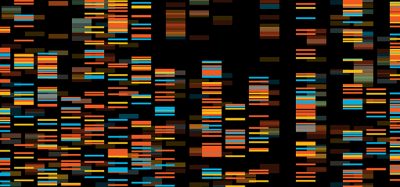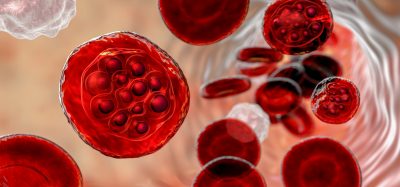Game-changing pan-TEAD inhibitor for solid tumours
Posted: 12 June 2023 | Fraser Owen (Drug Target Review) | No comments yet
Insilico Medicine has announced the nomination of ISM6331 as a potential best-in-class pan-TEAD inhibitor for the treatment of advanced solid tumours.

Insilico Medicine’s revolutionary AI (Artificial Intelligence) platform, Chemistry42, has successfully developed a ground-breaking molecule called ISM6331. This molecule shows immense potential as a pan-TEAD inhibitor, targeting advanced solid tumours. TEAD proteins are crucial for tumour progression and drug resistance, making them an attractive focus for therapeutic interventions. Leveraging AI-guided structure-based drug design, Insilico’s research and development team generated an impressive portfolio of over 6,000 molecules and identified three highly promising hit series.
Among these, ISM6331 emerged as the leading compound, exhibiting remarkable efficacy at low doses and demonstrating a favourable safety profile in preclinical studies. This significant achievement highlights the exceptional capabilities of Insilico’s AI technology and further solidifies its position as a pioneering force in innovative drug discovery. With 13 preclinical candidates and three AI-designed drugs currently undergoing clinical trials, Insilico is spearheading a revolution in cancer treatment and beyond. To learn more about this breakthrough, read our interview with Insilico Medicine’s founder and CEO, Alex Zhavoronkov.
Can you provide a summary of the key findings and implications of the preclinical studies on ISM6331 for the treatment of advanced solid tumours?
TEAD proteins are known to be very important in cancer progression
TEAD proteins are known to be very important in cancer progression, and there are several therapies currently in development. What’s exciting is that Insilico’s AI platform has designed a completely novel structure that has the potential to be best-in-class and even first-in-class and has shown promise in preclinical studies.
What is the potential therapeutic target of ISM6331 in the treatment of advanced solid tumours?
Transcriptional enhanced associate domain (TEAD) proteins, a family including TEAD1-4 transcription factors, are recognised to be key transcription factors of the Hippo pathway (a key signalling pathway in the progression of various diseases), and its transcriptional output plays an important role in tumour progression, metastasis, cancer metabolism, immunity, and drug resistance. By interacting with upstream oncogenic signalling pathways and controlling downstream target genes, TEAD has emerged as a potential therapeutic target for cancer treatment that can help to combat drug resistance.
ISM6631 is a potent pan-TEAD non-covalent inhibitor with a novel scaffold developed from Chemistry42 that has the potential to serve as a therapeutic approach for solid tumours in multiple cancer types that are resistant to current therapies.
How was ISM6331 generated and optimised using Chemistry42?
Chemistry42 is a customisable and fully automated software platform launched in 2020 that integrates generative AI algorithms with computational and medicinal chemistry methods to create novel molecules with drug-like properties, sometimes in a matter of days. The current version of Chemistry42 uses over 40 generative models, including generative autoencoders and generative adversarial networks as well as both structure-based and ligand-based drug design to generate and optimise de novo small molecules.
In this case, Insilico’s R&D team utilised the comprehensive database of Chemistry42, to compose a generative model, starting with TEAD1 crystal structure, and then blended in TEAD 2-4 structure properties including pharmacophore for the generation of pan-TEAD inhibitors. More than 6,000 molecules were generated and clustered into six series, among which seven molecules were synthesised and tested, yielding three promising hit series in the first round. Based on the affinity score, novelty score, and reward information provided by Chemistry42, a lead compound was acquired in the second round through molecular docking and other optimisation methods, leading to ISM6331.
What are the preclinical characteristics of ISM6331, including its efficacy, safety profile, and drug metabolism and pharmacokinetics (DMPK) properties?
ISM6331 is a Pan-TEAD inhibitor with novel scaffold and good IP space. Preclinical studies show broad anti-tumour effects in multiple cell lines and potent efficacy at low doses in animal models. It also demonstrates favourable oral bioavailability and high safety margin. With superior efficacy and safety, ISM6331 shows best-in-class potential.
ISM6331 is a Pan-TEAD inhibitor with novel scaffold with good IP space
How did Insilico Medicine’s R&D team utilise Chemistry42 in the development of pan-TEAD inhibitors?
Using the structure properties of existing TEADs – which proved to be ideal in terms of pocket size and shape cavity – the Chemistry42 engine created a novel scaffold that was used as the basis for numerous possible inhibitors. The system optimised the molecules that were most likely to succeed in terms of potency, metabolic stability, synthetic accessibility, and more. The novel molecules were further ranked based on their ADME and selectivity profiles.
How many molecules were generated and tested in the development process, and how many promising hit series were identified?
Initially, the system generated more than 6,000 molecules, 7 of the most promising molecules were synthesized and tested, yielding 3 promising hit series in the first round. Using Chemistry42’s ranking and reward function, scientists identified a lead compound in the second round through molecular docking and other optimisation methods, leading to ISM6331.
What is the significance of ISM6331’s novel scaffold and its demonstration of Insilico’s AI capabilities?
With this latest PCC (preclinical candidate) nomination, Insilico has again demonstrated that its AI platform is capable of creating new molecules that did not exist before that show promise as new possible therapies for difficult-to-treat cancers. Insilico’s AI platform has been validated through numerous promising preclinical candidates – this is the company’s 13th PCC since January 2021 – and a robust pipeline that includes three AI-designed drugs (for IPF, COVID-19 and cancer) currently in clinical trials.
Author Bio:
 Alex Zhavoronkov
Alex Zhavoronkov
Alex Zhavoronkov, PhD is the founder and CEO of Insilico Medicine, a leader in next-generation artificial intelligence technologies for drug discovery and biomarker development. Beginning in 2015, he invented critical technologies in the field of generative adversarial networks (GANs) and reinforcement learning (RL) for the generation of novel molecular structures with the desired properties and generation of synthetic biological and patient data. He also pioneered applications of deep learning technologies for prediction of human biological age using multiple data types, and transferred learning from aging into disease, target identification, and signalling pathway modelling.
Prior to founding Insilico, Alex worked in senior roles at ATI Technologies (a GPU company acquired by AMD in 2006), NeuroGNeuroinformatics, and the Biogerontology Research Foundation. Since 2012, he has published over 150 peer-reviewed research papers, and 2 books including “The Ageless Generation: How Biomedical Advances Will Transform the Global Economy” (Macmillan, 2013). He serves on the advisory or editorial boards of Trends in Molecular Medicine, Ageing Research Reviews, Ageing, Frontiers in Genetics, and founded and co-chairs the Annual Aging Research and Drug Discovery conference, the world’s largest event on aging in the pharmaceutical industry. He is an adjunct professor of artificial intelligence at the Buck Institute for Research on Aging.
Related topics
Artificial Intelligence, Cell Line Development, Cell Therapy, Cell-based assays, DNA, Drug Delivery, Drug Development, Drug Discovery, Drug Discovery Processes, Targets
Related conditions
Cancer
Related organisations
Insilico Medicine
Related people
Dr Alex Zhavoronkov







